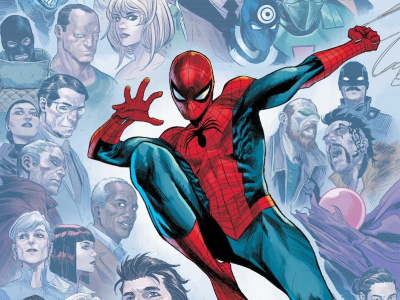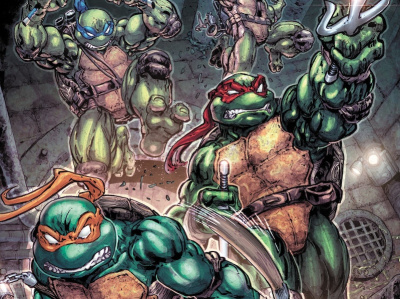A lifelong interest in Japanese animation has led to an avid interest in Japanese culture, which is why I visit the Japan Today Japan News - Kuchikomi website at least once a week. And it was there in a story marked Pokemon may save the day (about how in a downward economy, Japanese cultural exports) that I found a factoid that so far has gone unreported in any of the comic book news web sites; the American version of Shonen Jump sells 540,000 copies a month.
Hopefully this will finally get the American comic book industry to wake up to the fact that the pamphlet is dead. O.K., maybe not dead, dead, but it's not at all well. The analogy I like to use is, it's 1947 and anyone working in radio who has a brain in their head is updating their resumes and looking at television. Because, while the Golden Age of Radio didn't officially end until 1962, by '47 the writing was on the wall; the new thing is television, and while it'll take some time to get going, there's no way radio can compete with it.
Ignoring this simple fact is a recipe for extinction for the American comic book. By my calculations, the pamphlet has maybe another decade or so, or until the moment an issue of Action Comics hits the $3.00 mark -- I think at this point, the sales resistance among not just impulse buyers but cost conscious hard-core fans will be so great that sales will drop to the point where monthly publication is just no longer sustainable. As everyone knows, the real money is in the trade paperback collections, so perhaps the publishers should be looking for a more cost effective way of distributing the first serialization of the material.
That way is to go bigger. And it's not such a radical notion; both Marvel and DC already produce $4 to $6 comics that give readers a substantial amount of reading material for their money, it's just Marvel just calls them Marvel Must-Haves and Secret Files. So the only thing left it is a leap of faith; instead of producing a plethora of mediocre selling titles for the all important 'market share' (a concept that hasn't had much real significance since the dawn of the comic shop), consolidate your comics.
Wizard Magazine is probably the perfect size, shape and price for the comic book of the future; big enough to publish three 22 page stories (or a lot more shorter stories), with enough room left over for editorial material -- articles about upcoming comic book movies, etc. (yet small enough to fit in a comic book box, so as not to completely alienate the fanboys). To help defeat the inevitable sales resistance to a new format, how's 'bout instead of publishing separately that hot, hot new mini-series (say, The Dark Knight Strikes Again for DC and 1602 for Marvel), stick it in the middle of this proto-comic and watch sales soar. Not to mention the the fact newsstand circulation's might increase if that market is given a product they're already selling; something that looks like a comic book.
Or maybe the trick is to avoid the middleman altogether and just publish comics as paperbacks; Gladstone is doing it with Donald Duck Adventures, CrossGen tried it with Forge and Edge (which might have worked, from a better known publisher and better known characters). And maybe it's not even an either-or situation at first; why couldn't, say, Marvel, a month after their top-selling comics appeared, have them all reprinted every month in a nice single paperback with a low, low price of $8.95, that could easily be sold in bookstores and Supermarkets?
I realize it's hard for Marvel and DC to make such a radical changes when the status quo is still making them money. But I hope they don't wait until Shonen Jump sales reach the one million mark in -- or until their core audiences 'grays' to the point, as they say in the world of advertising, are 'too old to move.'







